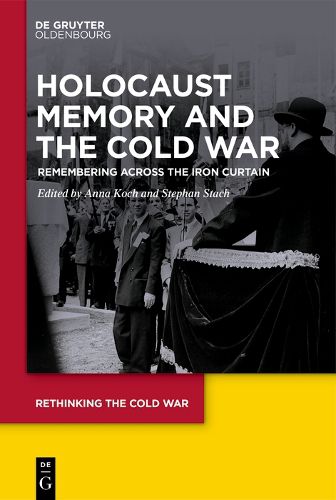Readings Newsletter
Become a Readings Member to make your shopping experience even easier.
Sign in or sign up for free!
You’re not far away from qualifying for FREE standard shipping within Australia
You’ve qualified for FREE standard shipping within Australia
The cart is loading…






Even before World War II had ended, survivors, historians, writers, and artists tried to make sense of the Holocaust. To do so, they relied on belief systems and narratives that, as the bloc confrontation intensified, were increasingly shaped by Cold War thinking. Foregrounding the Cold War's role in shaping Holocaust memory, this book highlights how the global conflict between East and West influenced research, legal proceedings, and collective as well as individual memories of the murder of European Jews. Contributions focusing on different parts of the world reveal commonalities, differences, and entanglements between Eastern and Western memories of the Holocaust. Examining Holocaust memory from various disciplinary perspectives, the authors highlight the many ways in which scholars, writers, artists, and survivors both countered and contributed to dominant narratives shaped by oppositional ideological stances. While such distinct ideological positions often mattered greatly, at other times a shared interest in bringing perpetrators to justice, commemorating victims, and providing testimony to the atrocities committed against Europe's Jews led to cooperation and exchange across the Iron Curtain.
$9.00 standard shipping within Australia
FREE standard shipping within Australia for orders over $100.00
Express & International shipping calculated at checkout
Even before World War II had ended, survivors, historians, writers, and artists tried to make sense of the Holocaust. To do so, they relied on belief systems and narratives that, as the bloc confrontation intensified, were increasingly shaped by Cold War thinking. Foregrounding the Cold War's role in shaping Holocaust memory, this book highlights how the global conflict between East and West influenced research, legal proceedings, and collective as well as individual memories of the murder of European Jews. Contributions focusing on different parts of the world reveal commonalities, differences, and entanglements between Eastern and Western memories of the Holocaust. Examining Holocaust memory from various disciplinary perspectives, the authors highlight the many ways in which scholars, writers, artists, and survivors both countered and contributed to dominant narratives shaped by oppositional ideological stances. While such distinct ideological positions often mattered greatly, at other times a shared interest in bringing perpetrators to justice, commemorating victims, and providing testimony to the atrocities committed against Europe's Jews led to cooperation and exchange across the Iron Curtain.